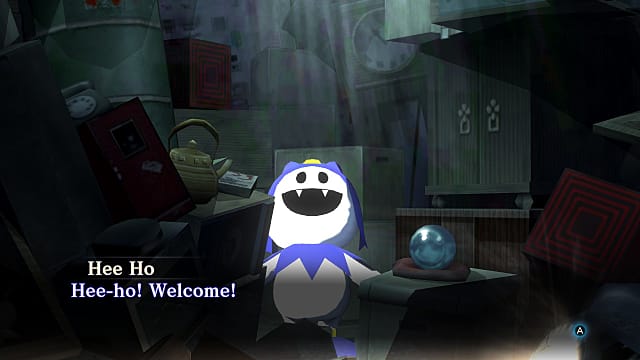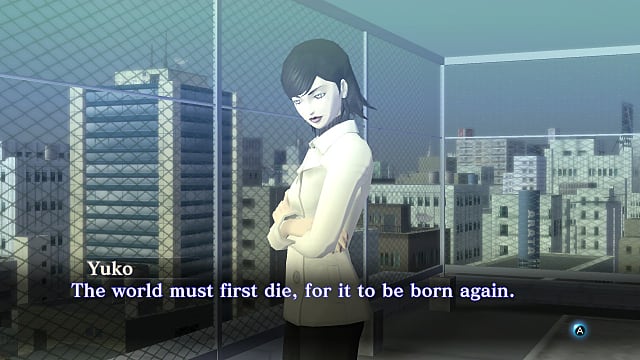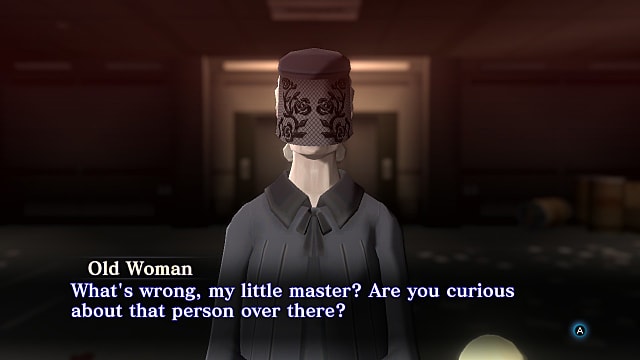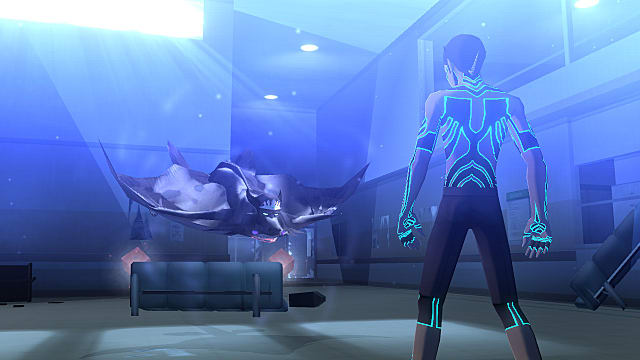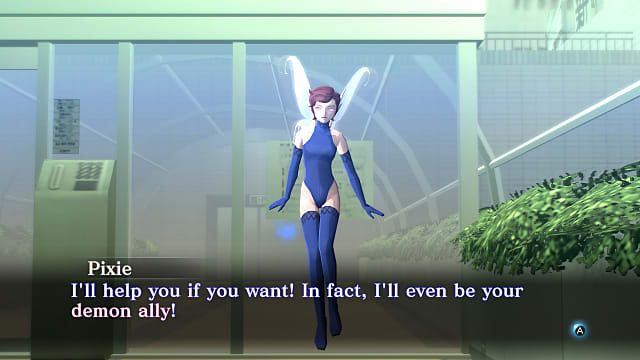Basically, it’s just another day in Shin Megami Tensei 3: Nocturne.
Nearly 18 years after its original PlayStation 2 release, SMT 3 is getting the HD remaster treatment. I’ve had a little while to wander Tokyo’s desiccated remains, and while there’s still so much left to uncover, I can already say this is probably ending up on my list of top five RPGs — at least until Shin Megami Tensei V comes out.
The end of the world takes surprisingly little time to happen, as it turns out. Within the first 30 minutes of SMT 3, your normal after-school routine gets shattered by the Conception, a catastrophe that rips the world apart, destroys almost all humans, and fills the void with demons.
Not every human dies, though. Your teacher and a handful of others survive intact. You’re different, though unlike other RPGs, being the chosen one in SMT 3 means having an old lady shove a demon bug down your throat.
That demon bug is a Magatama. Aside from granting you Demi-Fiend status, it also gives you a number of special skills. It’s not the only one, either, and it plays an important role in your strategy.
Where Shin Megami Tensei 4 ties weaknesses and character development with equipment, different Magatama influence stats growth, skill selection, and elemental weaknesses in SMT 3. You’ll get a second one barely an hour or so into the game, and it’s evident swapping between these for key fights is vital for survival.
And yes, you still have to ingest Magatama to gain their powers. It’s as gross as it sounds and then some. Occasionally after battle, for example, the Magatama will “rage” within you and grant some kind of additional effect.
However, it adds to Shin Megami Tensei 3’s atmosphere and presentation. SMT 4 leans into the post-apocalypse theme, and Persona gradually shifted away from horror. There’s a distinct sense of dread and mild horror permeating Shin Megami Tensei 3, though, giving it an identity not often found in RPGs.
Where SMT 4 has the series’ staple law, neutral, and chaos routes based on choices made, SMT 3 is all chaos. Admittedly, I haven’t seen much of the game’s broader story or how choices affect it so far, but you get a clear idea of the game’s main players early on and what their intent for the world likely is.
Fortunately, the pacing is much tighter than SMT 4, and you won’t be wandering a deadly multi-level dungeon for hours before anything interesting happens.
Fighting is turn-based with a twist. Physical attacks are lumped into types, elemental skills drive combat, and it’s all centered around finding and exploiting weaknesses. Unlike SMT 4, the difficulty seems more balanced. That’s probably because the godforsaken Smirk system is absent, so enemies don’t steamroll you before you have a chance to think.
Still, like other games in the series, SMT 3 is no pushover. The signature Press Turn system grants additional turns if you exploit unique weaknesses and takes turns away if yours are exploited (which they will be) or you miss an attack (which you will).
The key to victory lies in negotiation and fusion, though more than in Persona games. Fortunately, the remaster lets you choose skills to inherit, removing a significant hassle from the original release. Negotiation is as opaque as ever, and you get a good idea of what demons want pretty quickly. Spoilers: it’s almost always your soul.
There’s also a new quick save feature, which is a huge relief when you’re nowhere near a save point and it’s already 2 a.m. The free DLC, Merciful mode, lets you tone down tougher fights if you don’t feel like grinding, since difficulty is changeable at any point during the game.
The most evident new change is the HD part of the remaster, obviously, and it’s a bit of a mixed bag. Character models look slick and polished, absolutely oozing with Kazuma Kaneko’s style, and the demons have never looked better.
The dungeon areas are a bit too PS2, though, and probably would have benefited from more than just improved textures. They look good — just sparse.
That’s about the only complaint I have so far. Others have reported some black screen flashing problems, though it’s not something I’ve encountered.
This is all barely scratching the surface of the writhing darkness in Shin Megami Tensei 3: Nocturne remastered. Stick around for our full review sometime later in May.
